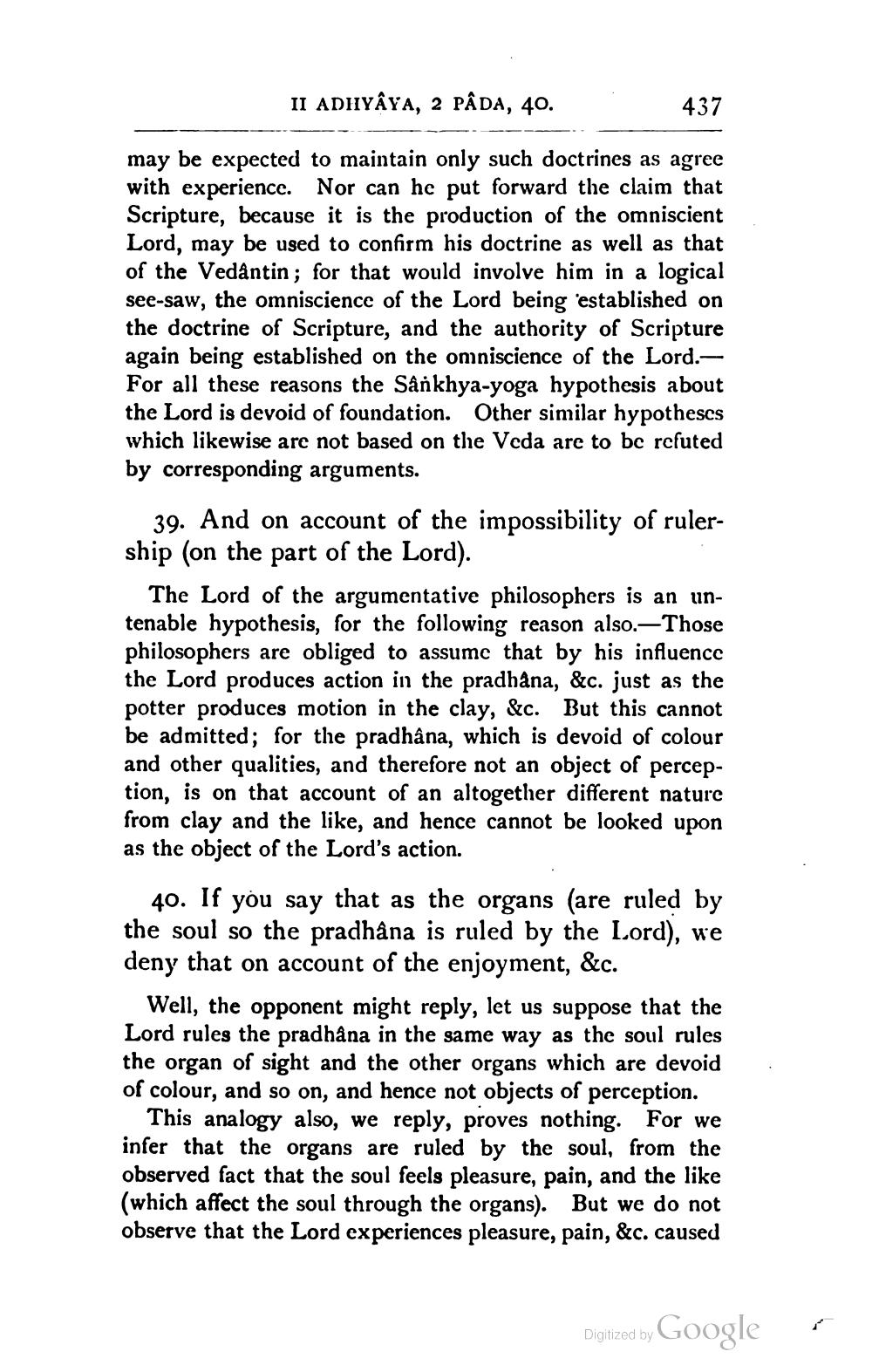________________
II ADHYAYA, 2 PÂDA, 40.
437
may be expected to maintain only such doctrines as agree with experience. Nor can he put forward the claim that Scripture, because it is the production of the omniscient Lord, may be used to confirm his doctrine as well as that of the Vedantin ; for that would involve him in a logical see-saw, the omniscience of the Lord being established on the doctrine of Scripture, and the authority of Scripture again being established on the omniscience of the Lord.For all these reasons the Sankhya-yoga hypothesis about the Lord is devoid of foundation. Other similar hypotheses which likewise are not based on the Veda are to be rcfuted by corresponding arguments.
39. And on account of the impossibility of rulership (on the part of the Lord).
The Lord of the argumentative philosophers is an untenable hypothesis, for the following reason also.—Those philosophers are obliged to assume that by his influence the Lord produces action in the pradhana, &c. just as the potter produces motion in the clay, &c. But this cannot be admitted; for the pradhâna, which is devoid of colour and other qualities, and therefore not an object of perception, is on that account of an altogether different nature from clay and the like, and hence cannot be looked upon as the object of the Lord's action.
40. If you say that as the organs (are ruled by the soul so the pradhana is ruled by the Lord), we deny that on account of the enjoyment, &c.
Well, the opponent might reply, let us suppose that the Lord rules the pradhana in the same way as the soul rules the organ of sight and the other organs which are devoid of colour, and so on, and hence not objects of perception.
This analogy also, we reply, proves nothing. For we infer that the organs are ruled by the soul, from the observed fact that the soul feels pleasure, pain, and the like (which affect the soul through the organs). But we do not observe that the Lord experiences pleasure, pain, &c. caused
Digitized by Google




